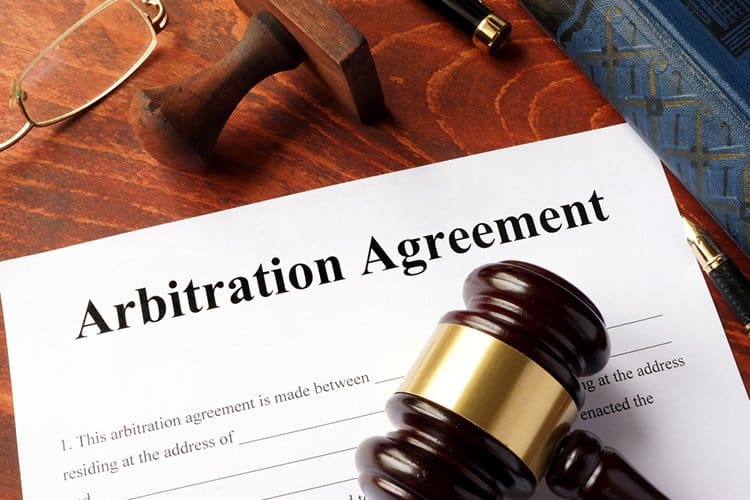
Tascha Shahriari-Parsa is a student at Harvard Law School.
Yesterday, the Senate passed H.R. 4445, a landmark, bipartisan “#MeToo” bill that bans forced arbitration agreements for workplace sexual harassment or assault claims, giving workers the choice to take their claims to court instead of being forced to have their cases adjudicated behind closed doors in arbitration proceedings. Specifically, the bill amends the Federal Arbitration Act (FAA) to ban employment contract provisions requiring arbitration that are signed before an incidence of workplace harassment or assault takes place; however, workers can still agree to take their case to arbitration if they so choose after an incident occurs. The bill was passed by the House on Monday and President Biden is expected to sign it into law soon. The bill passed in the House with significant Republican support, with 335 votes in favor and 97 against, and passed the Senate in an unrecorded voice vote. Officially, the bill is called the “Ending Forced Arbitration of Sexual Assault and Sexual Harassment Act of 2021.”
H.R. 4445 should be celebrated as a measure to both discourage workplace harassment and assault as well as to give victims of harassment and assault greater access to justice and redress. That being said, it’s also worth noting that H.R. 4445 is limited to arbitration agreements relating to sexual assault and sexual harassment in the workplace. Other workplace claims, including discrimination or wage theft claims, can still be subject to forced arbitration under the conservative-majority Supreme Court’s interpretation of the FAA. As Sarah Rudolph Cole, Ohio State University law professor wrote, “Really, how do you justify sex harassment not being arbitrable, but race harassment is?” The bill is nonetheless an important step in the right direction, in large part thanks to the efforts of women like hotel housekeeper Juana Melara who have been fighting against workplace harassment and abuse in the hospitality industry for years. Juana stated in Time’s Person of the Year feature in 2017 that “she and her fellow housekeepers didn’t complain about guests who exposed themselves or masturbated in front of them for fear of losing the paycheck they needed to support their families.” Although ending forced arbitration agreements will not make the problem disappear, it will give workers like Juana additional tools to seek justice.
The NLRB concluded public comments yesterday for its reconsideration of the Trump-era worker classification tests. In SuperShuttle, which may soon be overturned, the NLRB emphasized that the board needed to pay greater attention to “entrepreneurial opportunity” when deciding whether workers are classified as independent contractors under the NLRA, which made it more difficult for gig-workers to be classified as employees. However, both after and before SuperShuttle, the Board has employed a vague multi-factor balancing test that effectively allows any given Board to decide employee classification cases based on their own policy preferences—including whether they want more or fewer workers to have access to the NLRA’s protections. As Ben and others have previously on this blog, the ABC test is different: unlike the Board’s rule, the ABC test requires all of three factors to be met for independent contractor classification to kick-in.
Public comments by Rideshare Drivers United—representing 20,000 app-based drivers in California—asked the NLRB to switch to the ABC test, or some other test that clearly classifies gig workers as employees. On the other side, an amicus curiae was filed by a group of freelance writers, including the American Society of Journalists and Authors, asking the Board to maintain its standard from SuperShuttle.






Daily News & Commentary
Start your day with our roundup of the latest labor developments. See all
April 23
Supreme Court hears cases about 10(j) injunctions and forced arbitration; workers increasingly strike before earning first union contract
April 22
DOL and EEOC beat the buzzer; Striking journalists get big NLRB news
April 21
Historic unionization at Volkswagen's Chattanooga plant; DOL cracks down on child labor; NY passes tax credit for journalists' salaries.
April 19
Alabama and Louisiana advance anti-worker legislation; Mercedes workers in Alabama set election date; VW Chattanooga election concludes today.
April 18
Disneyland performers file petition for unionization and union elections begin at Volkswagen plant in Tennessee.
April 18
In today’s Tech@Work, a regulation-of-algorithms-in-hiring blitz: Mass. AG issues advisory clarifying how state laws apply to AI decisionmaking tools; and British union TUC launches campaign for new law to regulate the use of AI at work.